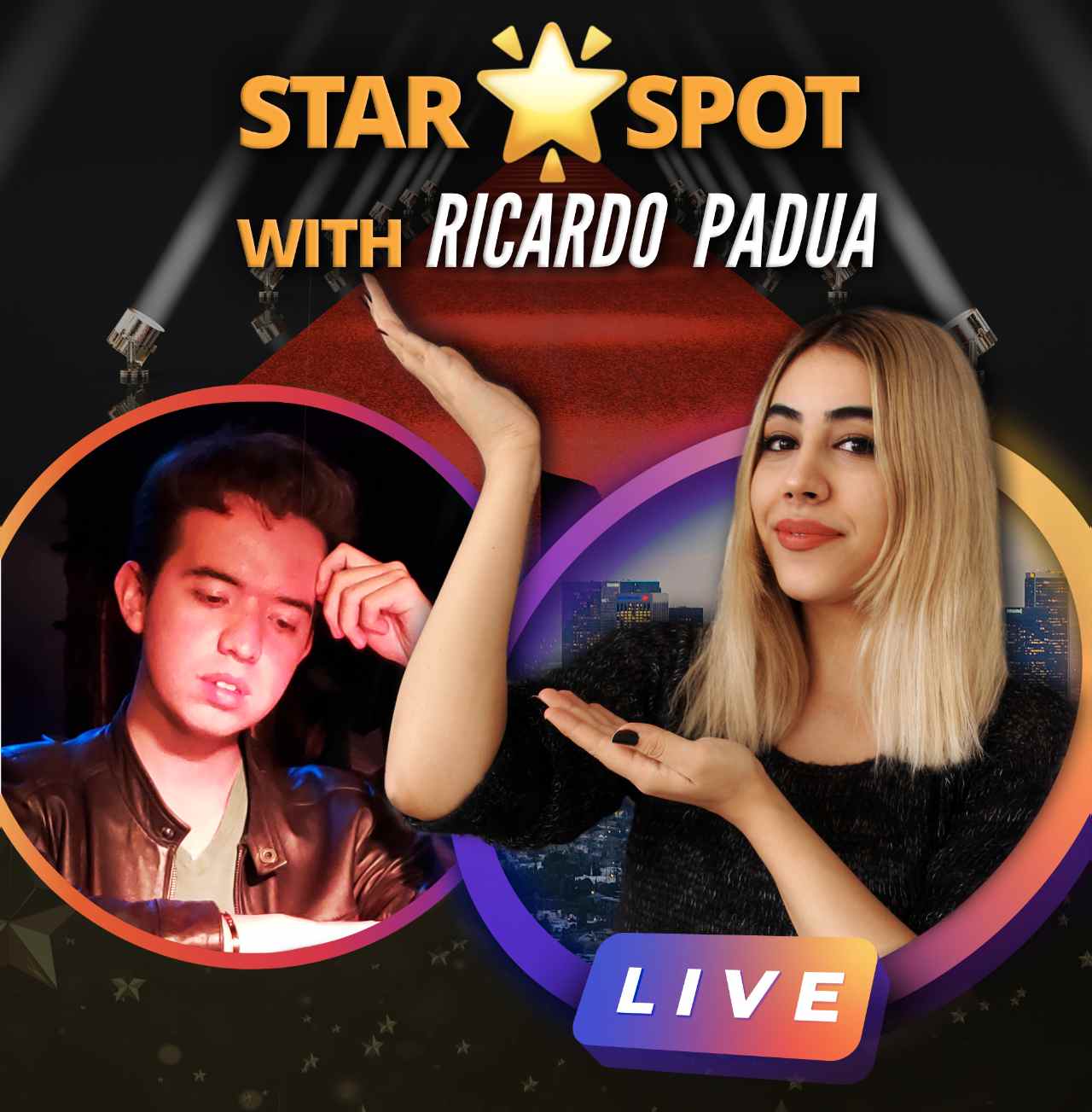Star Spot with Ricardo Padua, top-notch music producer, Publisher & Artist Developer from Mexico
Ricardo Padua: Passion, Challenges, and the Impact of social media on the Music Industry
Welcome to this episode of Star Spot! I’m Merry, and in this series, I interview InterContinental Music Awards winners and insiders, bringing you exclusive insights into the music industry. Today, I’m thrilled to have with me Ricardo Padua, Music Producer, Publisher & Artist Developer
Ricardo Padua Ramirez, known for his innate talent and ability to produce top-notch music. As a Mexican GRAMMY-Shortlisted Songwriter, Producer and Singer, he has worked with top artists such as Ariana Grande, Demi Lovato and Selena Gomez, just to name a few.
With an impressive start in music, Ricardo started playing piano at the age of 7. He began producing music at just 16 years old. His latest album “Sounds Like Me” has been shortlisted for the LATIN GRAMMYs and his GRAMMY-Shortlisted and Multi-Award-winning album “Electronic Heartbeat” was acclaimed by critics and recognized for Album of the Year and Producer of the Year.
Ricardo Padua’s modern production techniques, including the use of YAMAHA’s famous “VOCALOID” software, have made him one of the most recognized producers in the world. With his inborn talent and dedication, Ricardo Padua proves that real talent prevails in the music competition industry. And he is going to talk about his challenges, inspirations.
Let’s dive right into the interview summary and tap into Ricardo’s vast knowledge and experience. The full interview is available on Instagram – click here to check it out.
Ricardo, could you give us a brief introduction about yourself for those who are just joining us?
Absolutely! Hello everyone, I’m Ricardo Padua Ramirez, a music producer, singer-songwriter, and InterContinental Music Awards judge. I am from Mexico City, where I currently reside, also the owner of an entertainment company called Creating Magic Entertainment, which manages several content creators including musicians, comedians, and even Disney creators.
I also create content myself, focusing on music, technology, and Disney. However, music has always been my passion, and I have been playing the piano since I was around seven years old. I started writing music when I was 15, and professionally from 18 years old. Now, at the age of 29, I have been able to work with many talented individuals, and I am excited to continue to discover new talent through the InterContinental Music Awards.
How did you discover your passion for music at a young age?
My dad was instrumental in exposing me to musical culture from a young age. He was taking me to live concerts and musical theater shows instead of traditional boy stuff like sports. He bought me a piano and enrolled me in piano classes at the age of seven, and I fell in love with playing.
In high school, I initially wanted to pursue industrial design, but I couldn’t ignore the fact that music was what I wanted to do for the rest of my life. While I was a bit scared to tell my dad because of the challenges that come with a career in music, he was always supportive of my dreams. I firmly believe that every career is difficult in its own way, and music is no exception. However, my passion for music ultimately won out, and it has been my focus ever since.
What is your take on the effect of social media on the music industry?
I believe that social media has both positive and negative effects on the music industry. On the positive side, social media has democratized the industry and made it easier for talented musicians to be discovered. Anyone can now share their music on social media platforms and potentially reach a large audience. Without needing the backing of a big label. This has opened new opportunities for artists to create their own fan base and find success.
However, the negative side of social media is that it has made it harder to distinguish truly talented musicians from those who are just looking for fame or fortune. With so many people vying for attention on social media, it can be difficult to separate the wheat from the chaff. Additionally, some big labels are now more focused on signing artists with a large following. Rather than those with true talent, which can be discouraging for many talented musicians who may not have a large following yet.
Despite these challenges, I believe that social media has ultimately had a positive impact on the music industry. Platforms like TikTok and Reels make it easier for musicians to be discovered by fans, and the ability to self-distribute music has made it easier for artists to achieve success on their own terms. At the end of the day, what matters most is that musicians are passionate about their craft and are making music that resonates with their fans, regardless of whether they achieve fame or fortune.
Throughout your career, what would you say is your proudest accomplishment?
My proudest accomplishment, I believe, is being achieved this year with my entertainment company. We are collaborating with big brands like HBO and Disney, and we’re getting recognition as an entertainment company. We’re even able to attend red carpet events for HBO, Netflix, and Disney.
It’s very exciting to get recognized for that, and it’s been a lot of work, but I’m thrilled about it. Musically speaking, one of the songs I made for a pop singer named Kacey Fifield, had its video shown at the Chinese Theater in Hollywood. Which was a significant achievement.
What are some of the challenges, upsides, and downs you have experienced in your music and entertainment career?
The biggest challenge I have faced in the music and entertainment industry is the need to know the right people to move forward easily. Networking is key, and unfortunately, the industry has always been that way. However, I believe that it’s changing, especially for women, who are getting recognized more on the entertainment industry, which is a positive development. The industry has always been male dominated, which is also a challenge.
One of the downsides is that it’s a very envious industry and not known for teamwork. I don’t like that, and I’ve always tried to make alliances with everyone, but it’s hard when people are jealous of your accomplishments or don’t want to see you succeed. There are a lot of fake people who say they’re your friends but aren’t. It’s a lot of things in this industry, and it’s hard.
However, what matters most in the end is talent. The most important thing that I can say to anyone who is an aspiring musician is to never give up. It’s the most important thing because it’s going to get hard, and there will be times when you want to quit. But you must keep at it and keep pushing forward, and eventually, you’ll succeed.
As an experienced musician and artist, what advice would you give to those just starting out?
My advice to anyone starting out as an aspiring musician or artist is to never give up. It is essential to keep pushing forward, even when it gets hard, as you learn more from failure than from success. If you fail, try again, and see why you failed and what you can do to change. Keep trying until you succeed, as persistence and determination are key to success.
How has it been working with InterContinental Music Awards?
It has been a fantastic experience working with ICMA and Shahed Mohseni who is a great friend. InterContinental Music Awards is doing important work in recognizing independent artists, giving them a chance to get recognized in the music community. It is also an honor to be a part of the Recording Academy and the Latin Recording Academy, which allows me to decide on who wins a Grammy and a Latin Grammy.
The Grammy is a prestigious award in the music industry, and it is not chosen by popularity or fan base but by music professionals and peers, making it unique. The main difference with InterContinental Music Awards is that it focuses on independent artists, which I think is fantastic. Last year, one of the ICMA contestants we chose as a winner also won a Grammy, which shows that we are doing something right in recognizing talent.
Any last words you would like to share with our viewers?
I’m incredibly thankful to be here and be a part of the Intercontinental Music Awards. I’m always excited when we get to listen to the new submissions in May and June and discover new talent. As a judge, I love listening to independent music and discovering new artists.
If you’re an independent musician or want to be one, my advice is to go for it. Don’t let anyone tell you that you can’t do it. The most important thing is that you believe in yourself and give it your all. Don’t give up and keep pushing forward. Remember, you’ll eventually get there.
Ricardo Padua’s Contact Info:
- Instagram: https://www.instagram.com/rikrdopadua/
Click here to watch Ricardo Padua ‘s full interview on Instagram
InterContinental Music Awards Team


